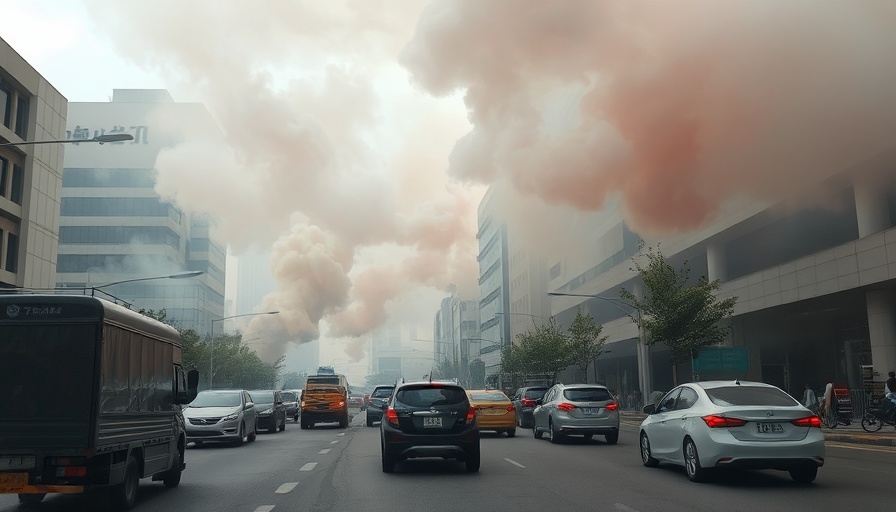
The Collapse of Peace Efforts in the Middle East
Recent Israeli strikes targeting top Hamas leaders in Qatar have sent shockwaves through the already fragile diplomatic landscape of the Middle East. For years, Qatar position itself as a neutral ground for peace negotiations, hosting discussions between various factions, including the United States and the Taliban. However, this latest military action suggests a seismic shift, leading many to question the future of diplomacy in the region.
Understanding the Stakes: Who Are the Key Players?
Among those killed was Khalil al-Hayya, a chief negotiator for Hamas, who had been instrumental in facilitating communications with American and Israeli officials. His presence in Qatar during active negotiations highlighted a moment where hope for ceasefire loomed. Qatari officials, long seen as mediators in conflict resolution, now face criticism and uncertainty regarding their role in future negotiations, shaking confidence in their ability to broker peace.
The Implications of Israel's Strikes
Israel's swift action in Doha indicates a hardline approach aimed at dismantling the leadership structure of Hamas. Prime Minister Benjamin Netanyahu has made it clear that repercussions will follow for attacks on Israeli citizens, as seen in the harrowing events of October 7, 2023. This aggressive stance underscores the complexities of ongoing conflicts and the stakes involved, compelling nations to reevaluate their positions.
Historical Context and Background
Qatar has earned the reputation of being the "Switzerland of the Middle East," providing a neutral ground for discussions even among hostile factions. The 2023 Qatar negotiations aimed to mediate a ceasefire amidst intense bombing campaigns and escalating violence in Gaza. However, the Israeli strikes signal a stark departure from this diplomatic oasis, leaving observers pondering whether Qatar can maintain its status as a negotiation hub.
The Human Cost of Conflict
The collateral damage from strikes like these extends beyond political repercussions. The ongoing violence exacerbates a humanitarian crisis in Gaza, with countless civilians facing dire circumstances. As negotiations stall and bloodshed continues, the plight of those caught in the crossfire stands as a poignant reminder of the stakes involved.
Potential Reactions and Future Predictions
As the dust settles from these recent conflicts, what might lie ahead for Qatar and its influence on diplomacy? Experts predict a possible isolation of Hamas as nations reevaluate alliances—leading to a colder diplomatic climate. However, some analysts argue this could galvanize new avenues for negotiation, forcing stakeholders to seek alternative solutions to entrenched issues in the region.
Counterarguments and Diverse Perspectives
Critics might argue that this military action could further deepen hostilities rather than quelling opposition. Others suggest a strategic approach may be necessary, as, without addressing root causes, retaliatory measures could spiral further out of control.
Emotional and Human Interest Angles
The human elements in these international crises make them all the more poignant. Families in Gaza and affected regions witness devastation daily, prompting urgent calls for humanitarian interventions. Journalists and humanitarian organizations face immense challenges in providing necessary care to those impacted by this instability.
Common Misconceptions and Myths
Many individuals misunderstand the motivations behind Hamas and the geopolitical intricacies in the Middle East. The narrative often simplifies the conflict to a battle of good versus evil, neglecting more profound historical grievances and socio-political contexts that shape these entrenched hostilities.
What This Means for the Average Citizen
For everyday people, the ramifications of these international decisions resonate deeply. Understanding the nuances of global news is essential for engaging with community discourse. Awareness of how these conflicts can impact local politics and economics is crucial for citizens striving to advocate for one another through activism or dialogue.
Take Action and Stay Informed
As events in the Middle East unfold, staying engaged with reliable news sources is paramount. The future of peace efforts hinges on understanding the intricacies of these conflicts and voicing support for humanitarian aid efforts. Empathetic awareness can lead to meaningful change and the development of diplomatic capacities in the region.
By keeping abreast of developments in global news coverage, individuals can play a crucial role in fostering a more informed and compassionate society. Stay tuned to world news today as we track these evolving situations together.
 Add Row
Add Row  Add
Add 




Write A Comment